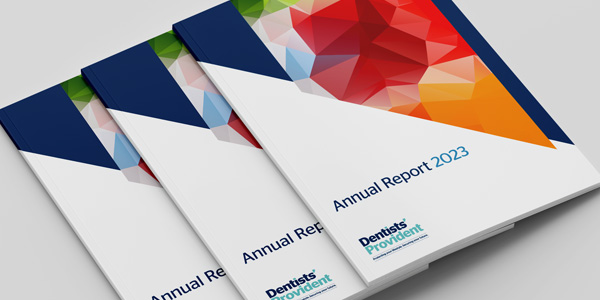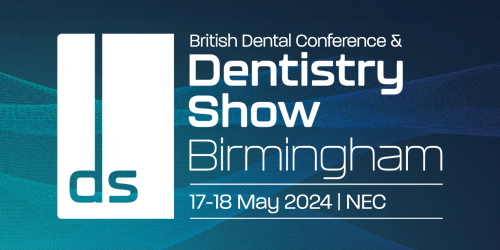
As oral healthcare professionals, especially with the new clinical care pathways and a more formal preventive approach getting forever closer, it’s becoming increasingly important to discuss more than your patient’s oral health and hygiene routine with them.
The issues
There are plenty of ‘myths and legends’ for oral as well as general systemic health that your patients may have seen in the media, and for the more nimble-fingered they will have scoured the internet before they visit you. While it’s important to be aware of these stories, it can be hard to find the time to keep on top of them, and explain them in the relatively short time you have your patients in the chair. After all, ‘headlines’ can be just that and the research published can be misinterpreted or out of date, so it is important to be able to find the real evidence behind them. These ‘facts’ can be as simple as food-related queries; that fillings are bad for their health or even, that they may have a higher risk of tooth decay because they breathe through their mouths at night.
This article touches on just some of these stories that appeared in the media over the last year.
The ‘check-up’
Let’s start with the 6-month consult. It’s what patients have known in the modern age, until they read in the paper that, ‘going to the dentist every six months is unnecessary.’ NHS choices tell patients that ‘You don't necessarily need to see your dentist every six months. Your dentist will recommend how often you should come to see them, based on your current dental health.’
But if it’s the patient’s expectation and what they have always done, then it can be hard to change that mindset. Media coverage such as this may be ‘new’ news for some, but it could support your conversations with patients who are uncomfortable with a longer than six month recall.
A mouth-healthy diet
Conflicting advice can be confusing for patients. While on one hand the government are recommending a healthy diet filled with fruit and veg with their 5-a day campaign, while on the other hand you may be recommending a reduction in their sugar intake (including natural sugars) and advising them to only eat fruit at meal times in the hope of preserving their enamel from dietary erosion. Snacking also makes exposure to acid worse and in the past has been dubbed as the way to increase metabolism and keep weight down. More recent studies have rebuked that, however the advice on the 5-a day website repeatedly suggests fruits and dried fruit-based snacks. Snacking is still so commonplace, that Mintel conducted research last year and found that 95% of UK consumers still snack regularly.
The much-debated sugar-tax was, for many, seen as a step forward after headlines in June 2015 suggested that sugary drinks were killing ‘hundreds of thousands of people’. It was one of eight recommendations from Public Health England (PHE) to tackle the UK's ‘addiction to sugar’. They stated that it will help to ‘achieve a new lower recommended daily intake of sugar (5% of total energy, recently down from 10%), save lives from weight-related diseases, cut tooth decay, and save the NHS £576 million a year.’ Very definitive statements, having said that though they finished by saying, ‘No single action will be effective in reducing sugar intakes.’ So even though the tax is agreed and due next year, the debate still continues about its effectiveness, including the FGDP calling to further extend it to include milkshakes.
However, there is little evidence so far that this is an effective method to combat the issues. In Mexico for example, it has only had minimal impact. Their government got in early in 2014 and introduced a 10 per cent levy as their consumption of sugar is amongst the highest in the world. But, how legitimate is it to try to switch a society to sugar-free drinks, when they also read headlines from oral health experts warning that these can damage their teeth as, not surprisingly, researchers reported that sugar-free drinks had acidic additives and a low pH. So what does this leave consumers to drink, especially those with children… water and milk alone?
Systemic issues
The oral cavity having an impact on general health issues is now being taken more seriously, as there is more and more evidence of systemic conditions such as diabetes, heart disease and stroke being linked to the bacteria in people’s mouths, giving you more evidence to be able to advise your patients about the importance of good oral hygiene.
Researchers in the US at the end of last year found new evidence that genes for encoding nitrates have been linked to migraine sufferers. It was thought that certain foods triggered migraines but researchers now believe that migraine sufferers’ mouths contain certain microbes. There has even been talk of scientists developing a ‘migraine mouthwash’. So if your patients are sufferers, it could be worth mentioning this.
Gizmos and gadgets
People love quick fixes, pain-free, hassle-free solutions. That’s why books for becoming ‘lean’ or following a new fad diet are always in the top ten, when we all know to lose weight you simply eat less and exercise more. And it’s the same in the dental world, especially where nervous patients fear pain and the noise of the drill.
‘Could a new toothpaste prevent heart disease?’ was the headline in the media in October last year. Essentially this new paste contains the same compound as the plaque revealing tablets that have been around for generations, but the media reported it as a revolution. Researchers measured changes in the high sensitivity C-reaction protein (hsCRP) in the body, which is an indicator of inflammation, through plaque level changes on people’s teeth and linked it systemically. When they used the paste it was lower, however as the toothpaste assisted in showing up where the plaque is to remove it more effectively it’s hard to actually link the toothpaste with directly reducing the levels of hsCRP.
In January last year it was reported that, ‘No more needles at the dentist: Just a tiny electric current instead’ catching people’s interest that there are now needle-free ways to be anesthetised.
This was taken from a study in Brazil looking at buccal iontophoresis, using a topical painkiller and an electrical current to maximize the effectiveness of the anesthetic appears to offer a solution.
Also reported last year was the discovery of a simple diagnostic liquid solution, to use even before you get the anaesthetic or drill out, for simple pain-free detection. This liquid is applied to the patient's teeth before their x-ray to help you see decay at an early stage in order to treat it before further intervention is necessary.
Health vs cosmetics
In May 2015 a paper published in the BDJ entitled ‘Balancing the risks and benefits associated with cosmetic dentistry - a joint statement by UK specialist dental societies’, discussed how to explain the dangers to patients of using invasive and destructive treatment for the very white, very straight ‘perfect’ smile. This can be an area of possible dilemma for many ethical dentists for achieving their patient’s wants, while not removing healthy enamel and dentine for a veneer or crown purely for cosmetic reasons. The study quoted a case study of a 17 year old girl who had four veneers despite poor hygiene; ultimately she had to have her teeth extracted and a denture fitted. Perhaps that story will do the trick to help you explain the implications?
It’s all in the genes
Last year a first-of-its-kind study undertaken in Columbia identified 41 main genes that could be responsible for periodontal disease. This could be interesting for patients, especially if they are at the early stages of gingivitis so they know to be more vigilant. With many high street genetic tests on the market now, it’s only a matter of time before they can tell people if they possess those genes.
Psychologists have also discovered evidence that the fear of the dentist could be a genetic condition.
Researchers in the US undertook a study reported in October last year, that fear of the dentist could be in part inherited, that it’s not just parents emotionally transmitting their own fear as previously thought, but a predisposition in their genes.
And this could be ground-breaking given that the most recent Adult Dental Health Survey in the UK (2009) suggested that one in ten people suffer from severe dental phobia. Using data from that survey, professors at King’s College London interviewed dentate people with phobia and found that they had higher levels of caries and reported a poorer quality of life linked to oral health compared to non-phobic. The article published in the BDJ at the end of 2015 found that people with dental phobia were in ‘routine’ occupations, single and with a lower level of education.
In 2015 researchers at King’s had already undertaken a study that suggested that cognitive behaviour therapy (CBT) could help people get over this fear. Professor Tim Newton from the Dental Institute said, ‘Our study shows that after on average five CBT sessions, most people can go on to be treated by the dentist without the need to be sedated.’
If your answer to the question in the title of this article is ‘no’ perhaps it’s time to review some of the new areas surrounding the dental profession from your patients’ point of view, and embrace the media ‘myths’ and legends’ to find out what can help them and, in turn you, in your daily practising life.
References available on request.
This article is intended for information only. It is not designed to give financial or medical advice, nor is it intended to make any recommendations of the suitability of our plans for a particular individual. Full details of our contract can be found in our rules on our website www.dentistsprovident.co.uk. Dentists’ Provident Society Limited does not accept liability and responsibility for changes made to this information. Some of the information in this article has been obtained from third parties. While we believe the information to be reliable; we make no representations as to its accuracy and accept no responsibility or liability for any error, omission or inaccuracy in the data supplied by any third party.
If you have any questions, please contact our member services consultants by emailing press@dentistsprovident.co.uk or calling 020 7400 5710.
If you have any questions, please contact our member services consultants by emailing
memberservices@dentistsprovident.co.uk or calling 020 7400 5710.

Our 2024 Annual General Meeting will be held at 91-94 Saffron Hill, London, EC1N 8QP on Friday 24th Ma…
Read more
The 2023 annual report from Dentists’ Provident, a leading income protection provider for dental profe…
Read more
Our next exhibition is the British Dental Conference & Dentistry Show in May, where we look forward to meeting anyone interested in becoming a member or members wanting to discuss their plans.